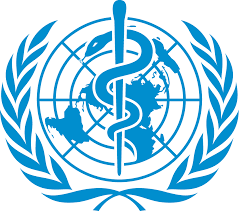 Menu
Menu
Published: 28 Oct 2022 1,461 views
The COVID-19 pandemic continues to pose a challenge to health care systems, particularly in Africa. Every new surge in cases and deaths stresses an already overworked and overstretched workforce, strains resources, and negatively affects health care operations on the continent. The pandemic’s uncertain duration means that health care communities must provide opportunities for stability and growth to the health workforce as it adapts to the ongoing situation. Health care leadership is essential in ensuring the continuity of operations based on effective decision-making and enhanced response operations.
However, the gap between emergencies and public health management skills, leadership, policy, and research has become increasingly evident during the pandemic.
Having well-prepared public health managers with the requisite skills to manage any pandemic is therefore critical for implementing a new public health order that will prepare Member States to promptly detect and effectively respond to public health threats.
Through a three-month fellowship programme, WHO AFRO seeks to support 15 aspirational Master’s degree students, PhD fellows, and emergency public health managers and leaders (Fellows) in Africa in acquiring advanced skills and competencies for strategizing, managing and leading health programmes that will positively transform future public health emergency response on the continent.
The fellowship programme seeks to bridge the emergency public health management and research-to-policy gaps and produce well-equipped, versatile managers and leaders as required by the WHO Emergency Response Framework and the International Health Regulations (2005) for emergency response. Additionally, it seeks to navigate the complex environment of public health practice to achieve and maintain a positive impact on health, politics, negotiation, partnerships and health diplomacy.
The fellowship will adopt a hybrid approach, combining face-to-face engagements with technology-based activities in line with WHO’s Emergency Preparedness and Response (EPR) flagship programme, which aims to reinforce and scale up the quality and scope of public health emergency management in Africa over the next five years.
WHO began when our Constitution came into force on 7 April 1948 – a date we now celebrate every year as World Health Day. We are now more than 7000 people from more than 150 countries working in 150 country offices, in 6 regional offices and at our headquarters in Geneva.

| Application Deadline | 13 Nov 2022 |
| Type | Fellowship |
| Sponsor | World Health Organization (WHO) |
| Gender | Men and Women |
WHO AFRO will provide financial support to the fellows to cover tuition and research fees.
To qualify, candidates must meet the following criteria:
· Develop an achievable proposal that addresses strategic challenges for improving the management of public health emergencies on the continent.
For more details, visit WHO website.